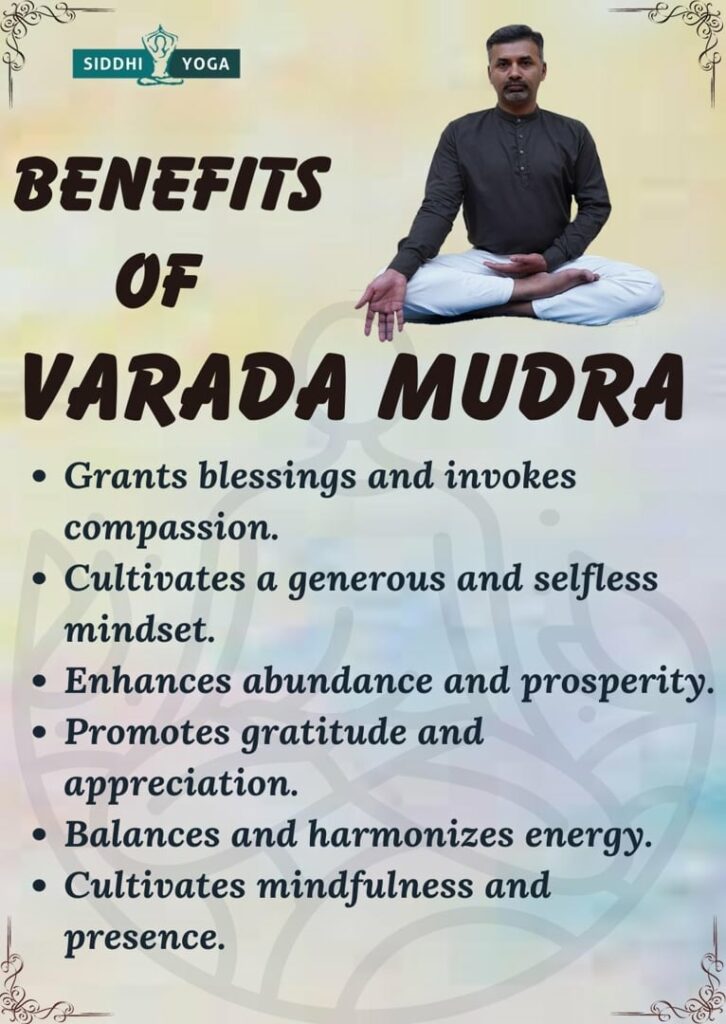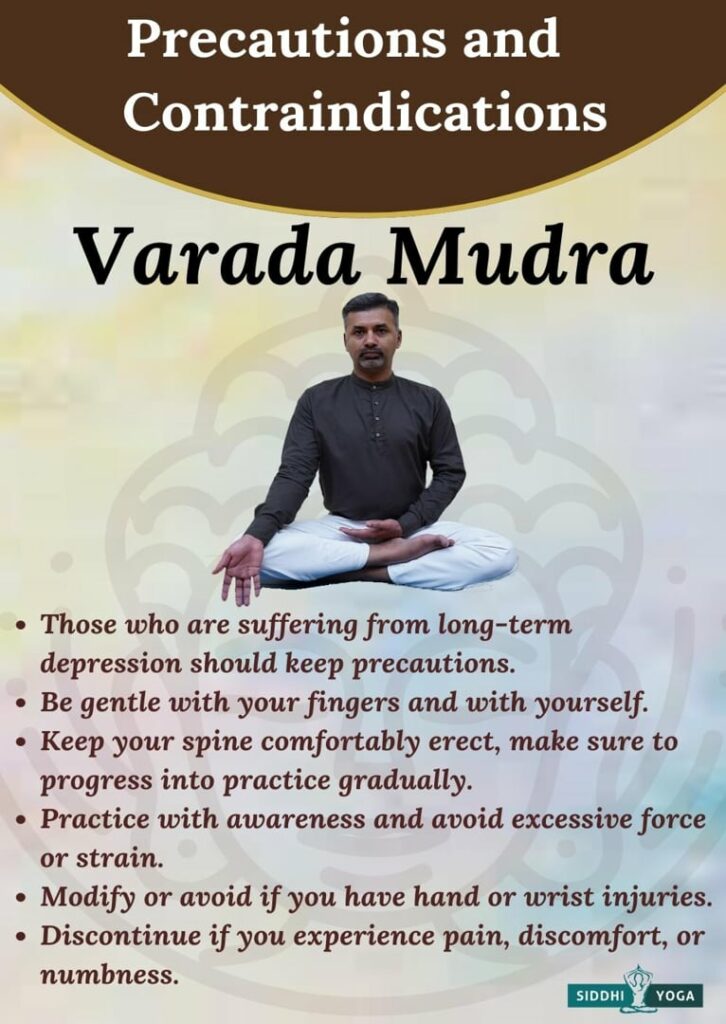
The Varada Mudra is one of the most beneficial hand gestures you can do to improve your health and well-being. Discover its meanings and benefits here!
What is Varada Mudra? Its Meaning, References, and Mythology
Varada Mudra is one of the Ancient hand gestures/seals. This Mudra can be seen in many Hindu mythological depictions and statues. This Mudra has also been depicted in various Buddha statues. This Mudra is also known as the “Favourable Mudra” or the Mudra of granting wishes/mercy. This is one of the Mudra which is very famous around the Asian region as some of the major religion covers it such as Hinduism, Jainism, and Buddhism. In most of the South East Asian region, Buddha has been depicted in this Mudra while he is concentrating.
According to Hindu Mythology, if a person practices Dhyana/meditation with utmost sincerity, dedication, and with utmost concentration on one of the Hindu deities. Then, the practitioner can request the gods to fulfill his wishes. This is one of the reasons why many Hindu deities’ statues can be seen granting wishes in Varada Mudra. As Varada Mudra is the Mudra of granting wishes or mercy. Hindu deities are depicted in this Mudra because it is believed that they will bless us with good luck and mercy and they will fulfill our wishes.
This Mudra represents sincerity and compassion. All those who practice this Mudra become more sincere and compassionate towards life, as we have mentioned that as per Hindu Mythology it was believed that one has to sincerely and compassionately concentrate on one of the Hindu deities to get his/her wish fulfilled.
This gesture brings generosity and morality along with other such good traits in the practitioner. With good traits come new opportunities, people love to talk to you, people will love to connect with you. If you practice it in the right way it will bring the opportunities that you were wishing for.
This Mudra also emphasizes the art of forgiveness. Forgiveness is one of the biggest things, even Buddha himself has told that Forgiveness is an art. You should forgive everyone around you without them even realizing it. They should not feel guilty about their mistake. This is real compassion.
Alternate names of Varada Mudra
Boon Dispenser gesture, Favourable Mudra, Mudra of granting wishes
How to Practice Varada Mudra?
- This Mudra can be practiced while holding different postures such as Tadasana (or Mountain Pose/ Samsthiti) and other different postures if you are comfortable in doing so.
- However, you can practice it while sitting in comfortable meditative postures (such as Sukhasana, Padmasana, or Swastikasana), this will help you to gain more benefits it. Make sure you do not experience any backache.
- Keep your neck and spine comfortably erect.
- Rest both of your palms comfortably on your knee. Palms facing upward towards the sky.
- Gently close your eyes.
- Now, slowly start to point all of your right-hand fingers down toward the ground while your palm will face the front side of your body.
- Make sure to relax your left hand on your knee or your lap.
- Keep all of your fingers comfortably extended.
- Inhale slowly and exhale gently.
- Witness your inner self.
- You can practice it with different Pranayama and various meditation techniques such as Bhramari Pranayama.
Benefits of Varada Mudra

- It helps to bring sincerity and compassion into life.
- This Mudra helps to fulfill every wish that you have, it brings positivity to your life and helps to achieve your goals.
- This Mudra brings positive changes in our attitude such as generosity, patience, and morality.
- This Mudra brings the power of forgiveness, which is a great power to have according to Buddhism. You should forgive everyone around you without them even knowing it.
- This Mudra also helps to increase concentration power.
- It also calms the Money Mind.
Precautions and Contraindications of Varada Mudra

Similar to all other Mudra practices, it has no side effects.
However, there are a few things to consider.
- Those who are suffering from long-term depression should keep precautions.
- Be gentle with your fingers and with yourself.
- Keep your spine comfortably erect, make sure to progress into practice gradually.
When and How long to do Varada Mudra?
- This Mudra can be practiced if you want to fulfill your wishes.
- If you want to become more sincere and compassionate.
- You can practice this to bring positive changes in your behavior and attitude.
- If you are someone who keeps grudges against people then this will help you to learn the art of forgiveness.
Morning is the ideal time to do any yoga or Mudra. In the morning, at this time during the daytime, our brain is at its best. So, you are more likely to be able to concentrate easily. Therefore, you should practice this Mudra from 4 am and 6 am to get the most effective outcomes.
If you are having difficulty with this during the morning hours then you can do this Mudra later in the evening too.
It is recommended to practice this Mudra for a minimum of 10-20 minutes daily. It’s up to you whether you wish to complete it in one stretch or in two threes that last between 10 and 15 minutes. Based on research the best way to practice an exercise for at least 20 minutes is to get the best benefits of that particular Mudra.
Breathing in Varada Mudra
There are breathing techniques that we can practice with this Mudra.
- You can practice Dharna (Concentration) with breath focus.
Visualization in Varada Mudra
visualize that you are living your life like a saint in the valley of the Himalayas
You are there to find yourself, and to find the answers to your questions.
Affirmation in Varada Mudra
While practicing this Keep a positive intention. Start with:
I’m not attracted by the power or by the beauty I’m attracted by the truth, honesty, intention, and care
Conclusion
The Varada mudra is a gesture of benevolence and offers. When used in meditation, it can help to cultivate feelings of generosity and compassion. It’s also been linked with relief from anxiety and stress. If you’re looking for a mudra to help you feel more connected to others and openhearted, the Varada mudra might be perfect for you. If you want to learn more about this or other mudras, check out our 108-mudra certification course!